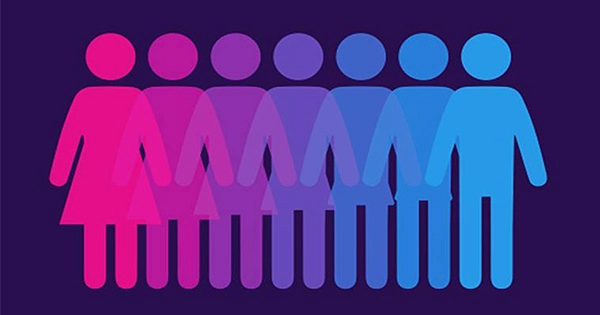According to a new study, despite being gender-neutral terminology, the ideas of “person” and “people” are not gender-neutral. These terms are more commonly used while talking about men than when talking about women, according to an examination of over 630 billion words published online. A group of psychology and linguistics experts looked at the linguistic context of the words “person” and “people,” as well as terminology for men and women, in a series of three experiments published in Science Advances.
Words associated with men (such as “he” or “male”) were used more similarly to “people” and “person” than words associated with women (such as “she” or “female”). According to the researchers, the difference is significant. “Many sorts of bias have been explored in the past, such as the tendency to associate’science’ with men more than women, but there has been far less work on how people regard a ‘person,'” said lead author Dr. April Bailey of New York University in a statement.
“Our findings reveal that people value men over women even when using gender-neutral phrases,” said co-author Adina Williams, a research scientist at Meta AI and a graduate of NYU’s linguistics doctorate program. The research was carried out with the help of an artificial intelligence machine that searches for related words. The authors give the following example: Even if you didn’t know what “balak” meant, you’d probably associate it with a kettle if you read the sentence “Each morning, Joe boiled water in the balak for tea,” because the phrases “boiled,” “water,” and “tea” are commonly associated with “kettle.”
This is the linguist’s perspective. In May 2017, it revealed a strong bias in the 630 billion words extracted from over 3 billion online pages by the non-profit Common Crawl. It isn’t only about the words “person” and “people,” though. In a second and third study, researchers looked at popular descriptors and verbs used to describe people rather than the terms “person” or “people.” They were created to test if characterizing who people are and what they do had a male bias, which the data suggest it does. This bias has ramifications that go beyond linguistics.
“Many societal decisions and policymaking are based on people’s perceptions,” said Andrei Cimpian, a professor at NYU’s Department of Psychology and the paper’s senior author. “Prioritizing men in our collective idea of a ‘person’ produces unfairness for women in decisions based on this idea because men and women make up about half of the species.” “Feminism is the radical premise that women are humans,” wrote writer Marie Shear in 1986. This study suggests that we should write more about women as individuals.
















